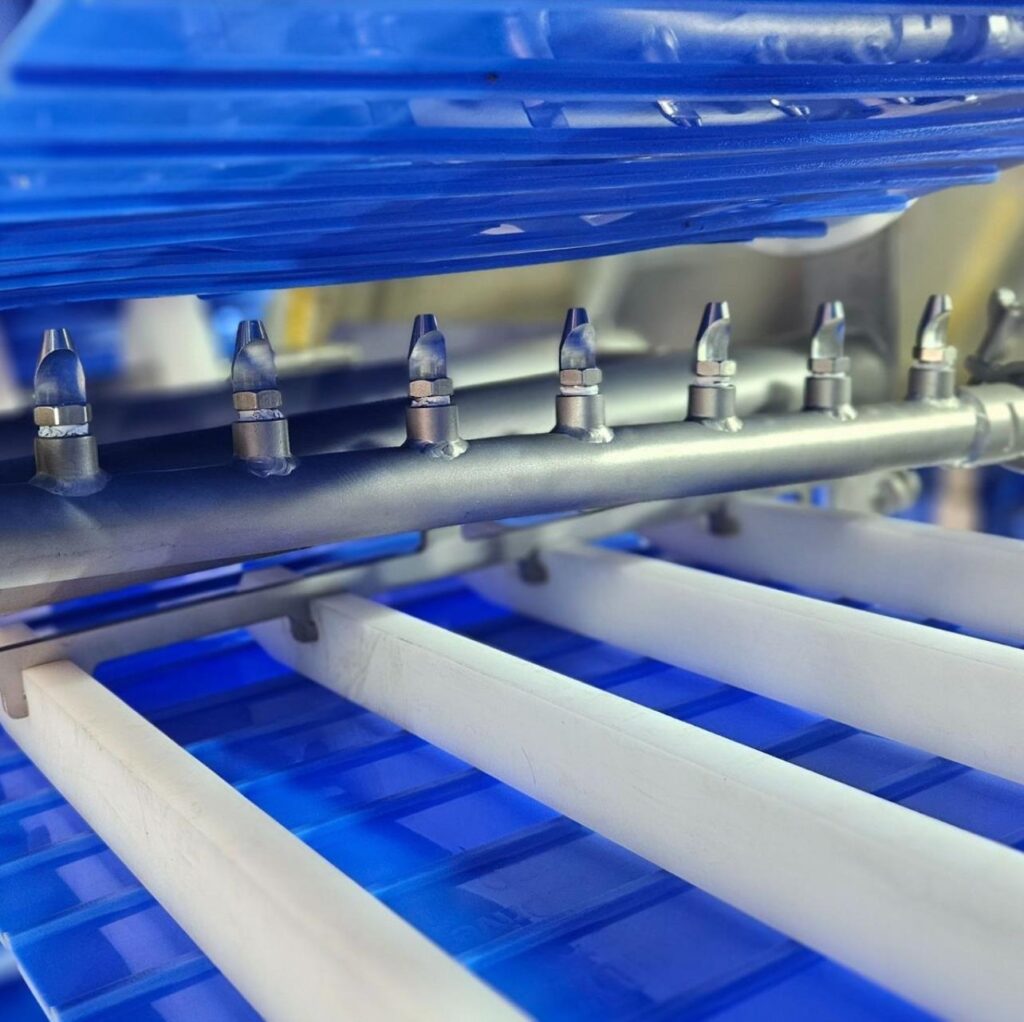
x
The food and beverage industry is constantly evolving, with a growing focus on efficiency, safety, and sustainability. Modern conveyor systems have kept pace with these demands, incorporating innovative features that enhance their performance and reliability. This article delves into the cutting-edge technologies and design elements that make contemporary conveyor systems stand out.
Advanced Automation and Integration
Automation plays a crucial role in modern conveyor systems, driving efficiency and reducing human error.
- Smart Sensors and IoT Integration: Modern conveyors are equipped with smart sensors that monitor various parameters, such as speed, load, and temperature. These sensors communicate with central control systems via the Internet of Things (IoT), allowing for real-time monitoring and adjustments.
- Automated Control Systems: Advanced control systems enable precise management of conveyor operations. These systems can automatically adjust conveyor speeds, manage sorting and routing tasks, and integrate seamlessly with other automated equipment in the production line.
Enhanced Hygiene and Safety
Hygiene and safety are paramount in the food and beverage industry, and modern conveyor systems are designed to meet these stringent requirements.
- Hygienic Design: Conveyor systems now feature smooth, easy-to-clean surfaces and materials that resist contamination. Stainless steel construction, sealed bearings, and minimal horizontal surfaces reduce the risk of bacteria buildup.
- Safety Features: Innovations in safety include automated emergency stops, safety guards, and light curtains. These features help protect workers from potential hazards while ensuring the smooth operation of the production line.
Flexibility and Customization
Modern conveyor systems offer unparalleled flexibility and customization to meet diverse production needs.
- Modular Design: Modular conveyor systems can be easily reconfigured or expanded to accommodate changes in production requirements. This flexibility allows for quick adjustments and scalability.
- Customizable Components: From different types of belts and rollers to specialized attachments for handling specific products, conveyor systems can be tailored to suit unique production processes. Customizable software settings also allow for precise control over system operations.
Energy Efficiency and Sustainability
Sustainability is a growing concern in the industry, and modern conveyor systems are designed to minimize their environmental impact.
- Energy-Efficient Motors: Newer conveyor systems are equipped with energy-efficient motors that consume less power while maintaining high performance. Variable frequency drives (VFDs) further enhance energy savings by allowing precise control over motor speed.
- Sustainable Materials: The use of recycled and recyclable materials in conveyor construction helps reduce the environmental footprint. Additionally, durable materials extend the lifespan of the equipment, reducing the need for frequent replacements.
Intelligent Design and Ergonomics
Ergonomics and intelligent design contribute to the overall efficiency and ease of use of modern conveyor systems.
- Ergonomic Interfaces: User-friendly interfaces and control panels make it easier for operators to manage conveyor systems. Touchscreen controls, intuitive software, and remote monitoring capabilities enhance usability.
- Space Optimization: Compact and space-efficient designs ensure that conveyor systems can be installed in various production environments, even those with limited space. Vertical conveyors and flexible layouts optimize floor space usage.
Explore the innovative features of modern conveyor systems in the food and beverage industry
Modern conveyor systems are equipped with a host of innovative features that enhance their efficiency, safety, and sustainability. Advanced automation and integration, enhanced hygiene and safety measures, flexibility and customization options, energy-efficient technologies, and intelligent design elements all contribute to making these systems indispensable in the food and beverage industry. By embracing these innovations, manufacturers can improve their production processes, reduce environmental impact, and ensure the highest standards of product quality and safety.
